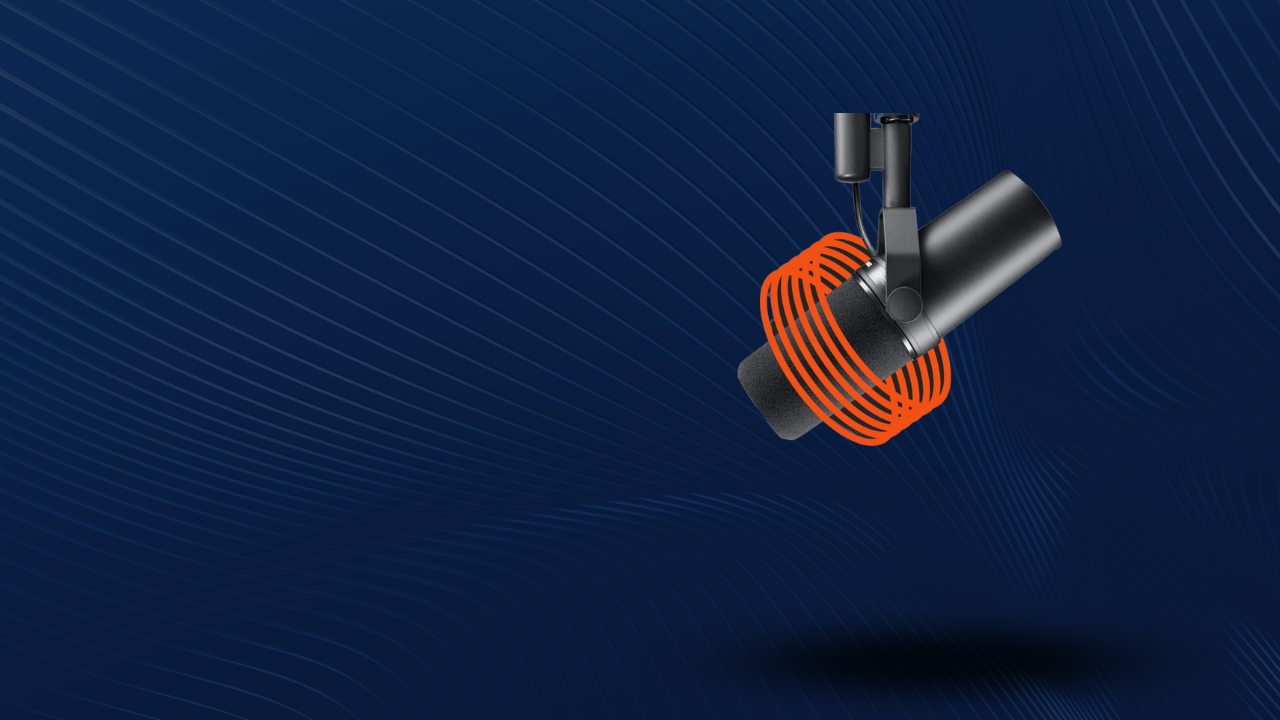Advertising Week New York
A lot happened in New York this week, let’s run down some highlights. Over 20,000 attendees descended on a small slice of Manhattan to discuss the future of advertising. One running thread is that of generative AI and what it means for marketing. Both for the mechanics of how advertisers build and publish ads, and for the content world they’re advertising in. With the launch of Meta’s Vibes feed and OpenAI’s Sora tool, social media feeds are now swamped with a new wave of feed-clogging content. The trick is, as is usually the case, the tech exists before safeguards to keep it in check. Convincing Rick & Morty characters and 3D Pokemon characters are promoting crypto. Almost-convincing videos of Everest climbers jumping to their deaths are going viral. I’ve even got a Sora clip pretending to be footage of a community theater production of a Sopranos musical from 2007 (and now “Sondheim should do a Tony Soprano musical” will forever be lodged in my brain).
The role of the content creator has shifted in recent years at events like AWNY. This year’s edition featured a live taping of Hot Ones, a $25,000 creator pitch contest sponsored by Adobe, and a session with Dhar Mann whipping up a campaign for Gap on-stage. Advertising Week global president Ruth Mortimer told Digiday the event has done private events built around creators, but this year things like the Meta-sponsored creator lounge are a new development. Traditionally creators are the last to be brought into a campaign, chosen to fit an agreed-upon direction a brand has decided on. Now creators are making an effort to reverse the flow, hosting their own brand activations and positioning themselves as a vital part of the advertising industry.
One of the biggest (if not the biggest) reveals in advertising this week: Microsoft’s demand-side platform (Microsoft Invest, formerly AppNexus/Xandr DSP) is being absorbed into Amazon DSP. As of March 2026, Microsoft will retire their ad-selling division and their advertisers will be migrated into Amazon’s ecosystem. As Shields’ reporting notes, it’s not just a consolidation of clients, it’s consolidation of inventory control. Between this, and deals made with huge streamers, it’s feasible that an average Amazon DSP client could reach 80 million CTV households with just a mix of Amazon-owned inventory and a dash of Roku.
Recently Tom Webster guest lectured for Steve Goldstein’s Business of Podcasting class at NYU. One of the assignments Goldstein gave the class was to listen to an AI-generated podcast episode and give feedback, which sparked a question from Webster:
“Given that so much of the trust we have in podcast hosts (and in the ads they read) is based on parasocial relationships, can we have a parasocial relationship with an AI?”
Luckily, there’s a relevant recent paper published in Computers in Human Behavior, a journal focused on the use of computers from a psychological perspective. An assistant or A friend? The role of parasocial relationship of human-computer interaction, from the School of Economics & Management at Changsha University looks at how humans build parasocial (one-sided) relationships with automated tools.
A key finding of the paper is that the people involved formed two distinct types of relationships with AI characters: “assistant” relationships, and “friend” relationships. AI characters that fall into the first group are seen as more competent but less warm, while friend characters are seen as far more warm but also less trusted to be competent. As Webster says, consider the difference in reaction you’d have in asking for a fact-check from Siri vs. your buddy Chad.
If podcast hosts are going to use AI clones of their voices to enable “host-read” ads at scale (and they are already), the key to not icking out audiences might be in understanding that difference, and knowing how to tune the voice to be a friend or an assistant given the context. A true crime show’s host will likely want robot-them to lean towards more “friend” vibes, while a tech podcast would much prefer a no-nonsense competent “assistant.”
Both take into account the time and place the AI host surrogate is being used in, and respects the specific brand of parasocial relationship the actual host has cultivated long enough to make the podcast monetizable at scale in the first place.
Spotify ChatGPT integration
A new update to OpenAI’s generative chatbot adds formal integrations with several apps. Once set up, users can ask the bot about real estate listings and be served official links from Zillow. Most notable for podcasting is Spotify’s integration, as users can ask ChatGPT for music and podcast recommendations.
AI search optimization is in the air, as earlier this week I covered a report looking at how the major chatbots are almost exclusively choosing to scrape YouTube when looking for video sources. If one wants their YouTube content to catch the eye of Gemini or ChatGPT, it’s best to focus on tutorial content, how-to, and explanatory content that answers direct questions or focuses on specific details that would help someone asking a question about that topic.
Similarly, Spotify podcasters now have AI optimization to consider. With the right keywords and presentation, a podcast likely will grab ChatGPT’s attention when looking for a given topic over more generically-presented shows.
A Conversation with Acast CEO Greg Glenday
I’m back at it with the videos again, and have a doozy for you today! Back on September 18th Bryan Barletta sat down with newly-instated Acast Ceo Greg Glenday to have a chat. The conversation kicks off with Barletta asking what, as the new CEO, Glenday thinks Acast does.
Video podcasting, while an important part of the industry, has gotten a disproportionate share of conversation for what it is in the podcast ecosystem, in Glenday’s eyes. Including overlap where traditional video content gets labeled as “podcast” content.
“If you have a ‘podcast’ that doesn’t work unless somebody is sitting there looking at it on a screen and they have to look at it the whole time? That may not be a podcast. You may have something else there.”
The lack of centralized algorithmic or platform control over podcasting remains its core strength. A direct relationship between content creators and their audiences that can’t exist in television or on social media platforms. As Glenday points out, there’s a whole wide world of slang vocabulary constructed specifically because content creators have identified words and topics that get their content flagged. And with content creators ultimately owning the distribution and content itself, podcasting operates virtually without borders. Glenday says he loves to see whenever a show from the UK will crack the top 50 podcasts in the U.S., because that doesn’t happen in old-school media. A quote from Barletta:
“How hard was it to watch Doctor Who in the U.S. for decades? It would have been top of the charts.”
Glenday describes podcasting at its core as three things: an audience, the shows they want to listen to, and the brands who want to work with the latter to get to the former.
“Acast should be as invisible as possible behind the scenes connecting those three people. My job is really easy: we talk to the creators, we talk to the audiences, we talk to the brands. Whatever complaints they have about the industry becomes our to-do list. We use everything at our disposal, we have 100 product dev engineers working every day to remove friction.”
It’s time for our Quick Hits. These are articles that didn’t quite make the cut for today’s episode, but are still worth including in your weekend reading. This week:
- The Diary of a CEO creator Steven Bartlett and former Mr Beast engineer Roxcodes have teamed up to launch Flightcast, a platform that allows video podcasts to distribute across major platforms from inside one dashboard (for example, the Podcast Movement Archive YouTube channel was able to clone itself over to a Spotify video podcast with a couple button presses in Flightcast).
- An SEC filing for PodcastOne’s preliminary record for Q2 fiscal 2026 shows $14.5 million in revenue (a 19% increase year over year).
- Coleman Insights and Women in Media Network are launching a new report called the LGBTQ+ Podcast Consumer Study, a research initiative designed to provide insight into consumer habits, creator challenges, and industry opportunities in the queer podcast ecosystem. Sponsorship opportunities are available for the study.
- The Wall Street Journal covers Alex Cooper launching the Unwell Ad Agency, which made a splash by soft-launching at Cannes Lions this year and then formally launching with the announcement that their first client is Google.
- A new episode of Podcast Perspectives interviews Lex Friedman about the evolution of the podcast industry.













































































































































































































